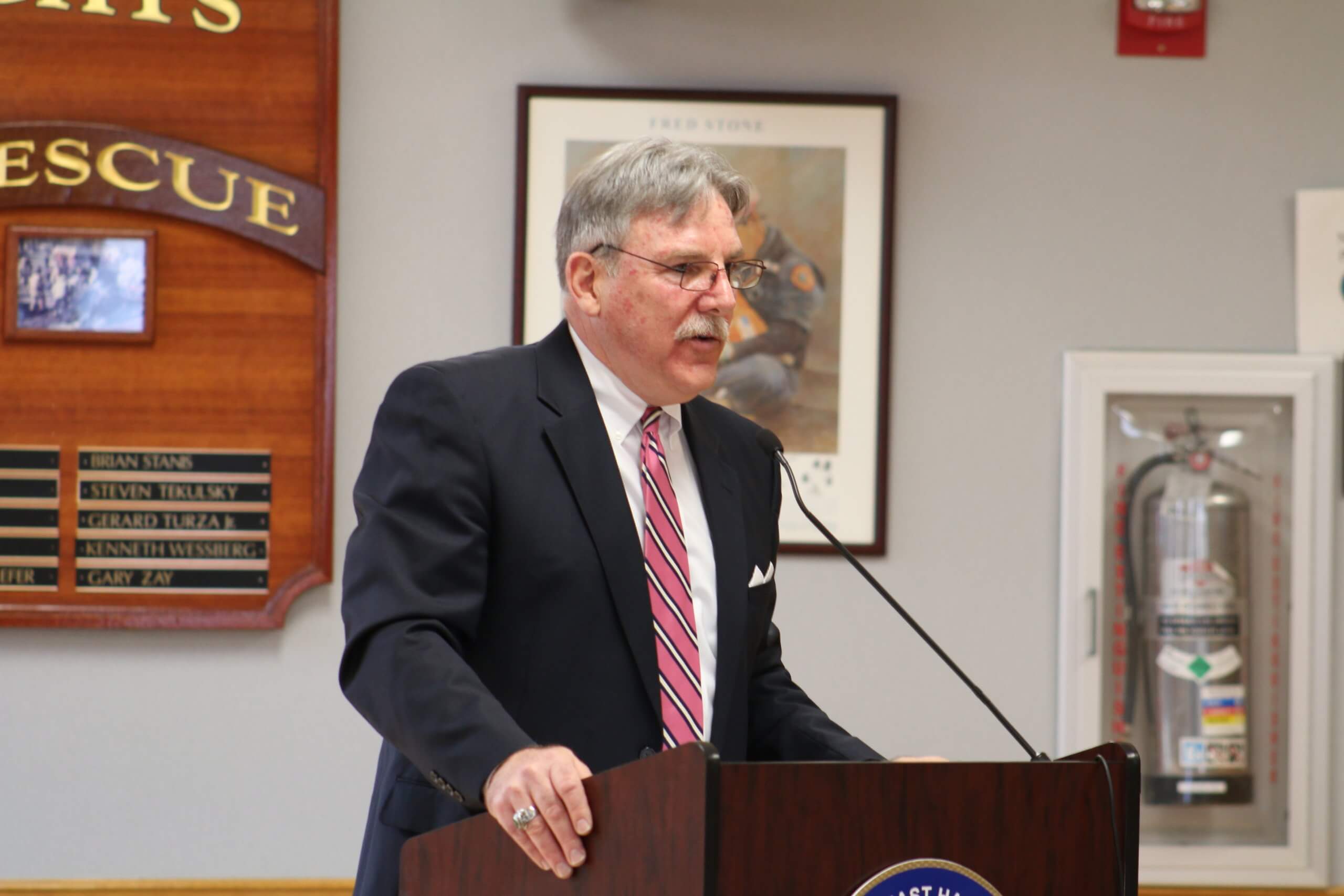More Opposition For Outdoor Party Nix

They were fighting for their right … to party.
More than a dozen people turned out to the East Hampton Village Board meeting Friday morning in opposition — citing case law, constitutional rights to assemble, and religious freedom — in the second public debate over a proposed law restricting outdoor parties.
Attorney Chris Kelley, representing The Hedges Inn, said he received a letter the day before informing him six permit applications for the inn’s events, including one for a wedding two weeks away, were denied under the existent law. He said he could pursue the case in court to expedite the matter. He cited examples of similar events that were approved by the village, and noted case law could back up his argument.
“I don’t want to have to litigate that [case] and I would rather that we come to some sort of an agreement,” he said.
Charlotte Sasso of Stuart’s Seafood Market in Amagansett said that neighbors who knowingly move into an area should not be allowed to dictate how long-time businesses carry on.
“That would be like someone moving in next to Stuart’s and saying, ‘Oh, I smell fish,’” she said.
Joanne Lester O’Brien, whose son is holding his reception at The Hedges Inn in two weeks, questioned why the board is “making it so hard” for local people living and businesses operating in the village to continue their way of life.
“There’s so many of us who could benefit from this, but there is a squeaky wheel that seems like it is going to win this fight,” O’Brien said, referencing residents who have complained about noise emanating from the parties.
Mayor Paul Rickenbach said the permit denials are a separate discussion from the legislation.
“I would also like everyone to understand that your board of trustees is empathetic and trying to listen to the total conversation, plus and minus, but again, at the end of the day, this deals with preexisting, non-conforming locations, and those certain instances where advantage has been taken,” he said.
One of the major provisions of the legislation would prohibit the village’s seven inns from hosting events in whole or in part outdoors because they are categorized as pre-existing, non-conforming businesses located in residential areas. Other provisions would require permits for mass gatherings over 50 people and in the case of residents, allow a prior walk-through by code enforcement.
It was not only residents with parties and weddings with outdoor seating and special parking requirements that were of concern, the practice of religious freedom also came into question. A letter by resident Leonard Ackerman, which was read into the record, touched on the topic of the Jewish practice of Shiva, in which mourners gather at the home of a family that has lost a loved one to mark their passing.
Ackerman sat Shiva for his wife this past summer at his home and noted more than 50 people attended and did park outside his home, something that would not be permitted under the new law requiring permits.
Board members also heard concerns from the East Hampton Clericus, a coalition of religious leaders in the Christian and Jewish faiths.
“A death occurs at any given time and the Jewish tradition is that you bury the dead as quickly as possible, so it would be impossible to receive a permit for such an event,” said Rabbi Josh Franklin of the Jewish Center the Hamptons, who sat Shiva at Ackerman’s home.
Trustee Richard Lawler noted the legislation’s intent is not aimed at restricting religious freedom.
“I just want to be clear that this legislation is not meant to interfere with that type of situation,” he said.
Rickenbach said there is no intention to usurp the constitution, engage in selective enforcement, or diminish religious rights, and that the village would take into consideration all of the comments made at the hearing.
The discussion will be continued at the village board’s next work session on April 5.
“It’s not an easy one to grapple with, although in some corners you can look at what certain court determinations have been and where we would like to get to as a legislative body,” the mayor said.
“So, give a little bit of credit — we can stand the heat, but we are going to deal with substantive, constructive, and objective commentary, and where applicable, we might fuse those into the language for the code as we are attempting to achieve a goal,” Rickenbach concluded.
Peggy@indyeastend.com



